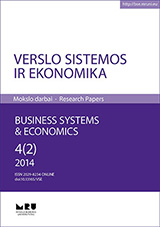Avoiding the high debt-low growth trap: lessons for the new member states
Avoiding the high debt-low growth trap: lessons for the new member states
Author(s): Pavol Baboš, Zsolt GálSubject(s): Economy
Published by: Mykolas Romeris University
Keywords: public debt; economic growth; debt threshold; external debt; debt overhangs; advanced and emerging economies
Summary/Abstract: Despite relatively low starting level, public debt has been rising quickly in the post-socialist New Member States (NMS) of the European Union. The rising international literature on the effects of debt on economic development provides several lessons, although it mostly deals with the advanced industrial countries. The aim of this paper is twofold. Firstly, the authors of this paper survey the existing literature and draw possible conclusions for the NMS. The main argument here is that there are good reasons for the NMS to avoid high debt levels for reasons, such as negative impact on economic growth and related difficulties with deleveraging. Secondly, the authors inspect the data for the whole European Union from 2000 until 2013 and compare the impact of the indebtedness on Western versus Post-Communist economies. Empirical findings are in line with the previous research and show that high levels of indebtedness are more damaging to the post-communist countries. Therefore, in the conclusion, the theoretical and empirical arguments in favour of avoiding high debt levels are summarized.
Journal: Business Systems & Economics
- Issue Year: 2014
- Issue No: 1
- Page Range: 154-167
- Page Count: 14
- Language: English

